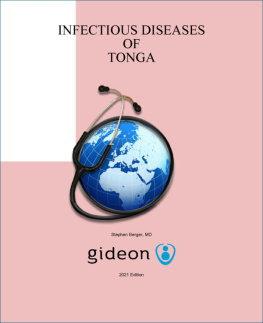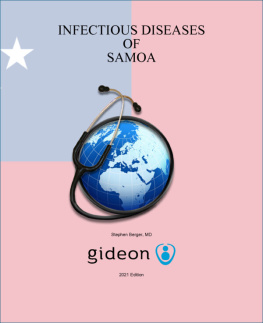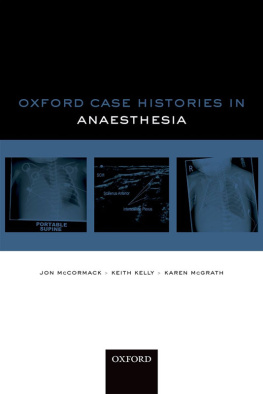Hilary Humphreys - Oxford Case Histories in Infectious Diseases and Microbiology
Here you can read online Hilary Humphreys - Oxford Case Histories in Infectious Diseases and Microbiology full text of the book (entire story) in english for free. Download pdf and epub, get meaning, cover and reviews about this ebook. year: 2020, publisher: OxfordUP, genre: Children. Description of the work, (preface) as well as reviews are available. Best literature library LitArk.com created for fans of good reading and offers a wide selection of genres:
Romance novel
Science fiction
Adventure
Detective
Science
History
Home and family
Prose
Art
Politics
Computer
Non-fiction
Religion
Business
Children
Humor
Choose a favorite category and find really read worthwhile books. Enjoy immersion in the world of imagination, feel the emotions of the characters or learn something new for yourself, make an fascinating discovery.
- Book:Oxford Case Histories in Infectious Diseases and Microbiology
- Author:
- Publisher:OxfordUP
- Genre:
- Year:2020
- Rating:5 / 5
- Favourites:Add to favourites
- Your mark:
- 100
- 1
- 2
- 3
- 4
- 5
Oxford Case Histories in Infectious Diseases and Microbiology: summary, description and annotation
We offer to read an annotation, description, summary or preface (depends on what the author of the book "Oxford Case Histories in Infectious Diseases and Microbiology" wrote himself). If you haven't found the necessary information about the book — write in the comments, we will try to find it.
Oxford Case Histories in Infectious Diseases and Microbiology — read online for free the complete book (whole text) full work
Below is the text of the book, divided by pages. System saving the place of the last page read, allows you to conveniently read the book "Oxford Case Histories in Infectious Diseases and Microbiology" online for free, without having to search again every time where you left off. Put a bookmark, and you can go to the page where you finished reading at any time.
Font size:
Interval:
Bookmark:

Series Editors
Sarah Pendlebury and Peter Rothwell
Published:
Neurological Case Histories (Sarah T. Pendlebury, Philip Anslow, and Peter M. Rothwell)
Oxford Case Histories in Anaesthesia (Jon McCormack and Keith Kelly)
Oxford Case Histories in Cardiology (Rajkumar Rajendram, Javed Ehtisham, and ColinForfar)
Oxford Case Histories in Gastroenterology and Hepatology (Alissa J. Walsh, Otto C. Buchel, Jane Collier, and Simon P.L. Travis)
Oxford Case Histories in General Surgery (Judith Ritchie and K. Raj Prasad)
Oxford Case Histories in Geriatric Medicine (Sanja Thompson, Nicola Lovett, John Grimley Evans, and Sarah Pendlebury)
Oxford Case Histories in Lung Cancer (Himender K. Makker, Adam Ainley, Sanjay Popat, Julian Singer, Martin Hayward, and Antke Hagena)
Oxford Case Histories in Neurosurgery (Harutomo Hasegawa, Matthew Crocker, and Pawan Singh Minhas)
Oxford Case Histories in Oncology (Thankamma Ajithkumar, Adrian Harnett, and Tom Roques)
Oxford Case Histories in Respiratory Medicine (John Stradling, Andrew Stanton, Najib M. Rahman, Annabel H. Nickol, and Helen E. Davies)
Oxford Case Histories in Rheumatology (Joel David, Anne Miller, Anushka Soni, and Lyn Williamson)
Oxford Case Histories in Sleep Medicine (Himender K. Makker, Matthew Walker, Hugh Selsick, Bhik Kotecha, and Ama Johal)
Oxford Case Histories in TIA and Stroke (Sarah T. Pendlebury, Ursula G. Schulz, Aneil Malhotra, and Peter M. Rothwell)

Great Clarendon Street, Oxford, OX2 6DP,
United Kingdom
Oxford University Press is a department of the University of Oxford.
It furthers the Universitys objective of excellence in research, scholarship, and education by publishing worldwide. Oxford is a registered trade mark of Oxford University Press in the UK and in certain other countries
Oxford University Press 2020
The moral rights of the authors have been asserted
First Edition published by Churchill Livingston 1996
Second Edition published by Oxford University Press 2004
Third Edition published by Oxford University Press 2020
Impression: 1
All rights reserved. No part of this publication may be reproduced, stored in a retrieval system, or transmitted, in any form or by any means, without the prior permission in writing of Oxford University Press, or as expressly permitted by law, by licence or under terms agreed with the appropriate reprographics rights organization. Enquiries concerning reproduction outside the scope of the above should be sent to the Rights Department, Oxford University Press, at the address above
You must not circulate this work in any other form and you must impose this same condition on any acquirer
Published in the United States of America by Oxford University Press
198 Madison Avenue, New York, NY 10016, United States of America
British Library Cataloguing in Publication Data
Data available
Library of Congress Control Number: 2019948493
ISBN 9780198846482
eISBN 9780192585622
Oxford University Press makes no representation, express or implied, that the drug dosages in this book are correct. Readers must therefore always check the product information and clinical procedures with the most up-to-date published product information and data sheets provided by the manufacturers and the most recent codes of conduct and safety regulations. The authors and the publishers do not accept responsibility or legal liability for any errors in the text or for the misuse or misapplication of material in this work. Except where otherwise stated, drug dosages and recommendations are for the non-pregnant adult who is not breast-feeding
Links to third party websites are provided by Oxford in good faith and for information only. Oxford disclaims any responsibility for the materials contained in any third party website referenced in this work.
Case histories have always had an important role in medical education, but most published material has been directed at undergraduates or residents. The Oxford Case Histories series aims to provide more complex case-based learning for clinicians in specialist training and consultants, and is now well-established in aiding preparation for entry- and exit-level specialty examinations and revalidation. Each case book follows the same format with approximately 4550 cases, each comprising a brief clinical history and investigations, followed by questions on differential diagnosis and management, and detailed answers with discussion.
We are grateful to our colleagues in the various medical specialties for their enthusiasm and hard work in making the series possible.
Sarah Pendlebury and Peter Rothwell
From reviews of other books in the series:
Oxford Case Histories in Neurosurgery
This book provides a great method for learning and preparing for neurosurgery examinations. The cases cover all relevant topics in neurosurgery, and the questions following the cases go to the core of the subject, highlighting the important points for students. The discussion section in particular is very informative, going over the differential diagnosis and citing the scientific basis for the answers. The strengths of the book are the simple and concise explanations and the discussions of related topics. This is useful not only for examinees, but also for practising neurosurgeons.
Ramsis Farid Ghaly, MD, Doodys Notes
Oxford Case Histories in Cardiology
Clearly the three authors have put a huge amount of time and effort into this book to make sure it is relevant, accurate and up to date.
Overall, this book will be an excellent aid to those preparing for post-graduate exams in general medicine and cardiology, but will also be of relevance to senior medical students with more than a passing interest in cardiology.
Cardiology News
Oxford Case Histories in Respiratory Medicine
It is like having your favourite clinical teacher share his/her accumulated clinical nous in a way that makes the apparently ordinary case stimulating and full of subtlety I thoroughly enjoyed this book and recommend it to specialist registrars and consultants in respiratory medicinego out and get a copy for your department.
British Journal of Hospital Medicine
Oxford Case Histories in General Surgery
The book has many strengths: it is supported by being part of a lineage of great pedigree, but it upholds the series name with its own qualityThis book has achieved everything it set out to do and I have enjoyed reading it.
BMA reviewing panel, BMA Medical Book Awards
Infection continues to be important as a cause of admission to hospital and contributes to morbidity and mortality in the community. The re-emergence of diseases, previously thought to be quiescent, such as Ebola, and new challenges, for example, carbapenemase-producing Enterobacteriaceae (Enterobacterales), mean that there is almost constant change and a need to adapt and amend current approaches to diagnosis, management, and prevention.
Case histories are a useful learning medium as they reflect, to some degree, real life; patients present with a constellation of symptoms and signs which suggest infection and warrant further investigation and management. Our choice of cases is meant to reflect important pathogens and disease syndromes as well as those that are either common or critical in terms of an adverse outcome. However, not every particular pathogen or infection syndrome can be covered in this format. Rather, the cases we have included reflect the priorities of the authors as to what the trainee should be familiar with and those areas discussed in each case are currently of interest or reflect where there is controversy. Each case in addition is followed by further reading with approximately five sources listed where the reader may find additional information germane to that covered in the text.
Font size:
Interval:
Bookmark:
Similar books «Oxford Case Histories in Infectious Diseases and Microbiology»
Look at similar books to Oxford Case Histories in Infectious Diseases and Microbiology. We have selected literature similar in name and meaning in the hope of providing readers with more options to find new, interesting, not yet read works.
Discussion, reviews of the book Oxford Case Histories in Infectious Diseases and Microbiology and just readers' own opinions. Leave your comments, write what you think about the work, its meaning or the main characters. Specify what exactly you liked and what you didn't like, and why you think so.










